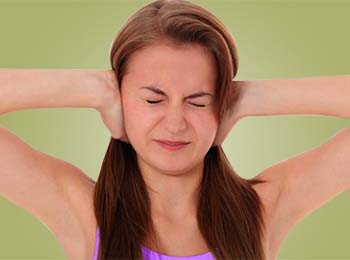
- Tinnitus is an annoying sensation in the ears due to abnormal perception of hearing when no external sounds are present.
- Tinnitus can be experienced as ringing, roaring, buzzing, clicking, hissing, ticking, whistling or whooshing sound. These are leading symptoms of tinnitus.
- It may be heard as a low roar to high squeal. The pitch may vary in different individuals. Sometimes it is so loud as to interfere with the ability to concentrate or listen to the real sounds.
- Symptoms of Tinnitus may be present persistently or may just come and go.
- A special category is tinnitus that sounds like one's heartbeat or pulse, also known as pulsatile tinnitus.
- One or both ears may be affected.
- Hearing loss may also be one of the symptoms of tinnitus.
- Tinnitus may be extremely disturbing and annoying for many patients and it negatively affects the quality of life.
- There are two kinds of tinnitus
SUBJECTIVE TINNITUS: It is the type of tinnitus which only the patient can hear, which is the most common type. Subjective tinnitus can be caused by problems in the outer, middle or inner ear. It can also be caused by the problems in the auditory (hearing) nerves or the part of the brain which interprets the signals as sound waves.
OBJECTIVE TINNITUS: It is the type of tinnitus which the doctor can hear on examining the patient with a stethoscope or by simply listening in close proximity to the ear. This is a rare type and can be caused due to problems in the blood vessels, inner ear bone or muscle contractions.















